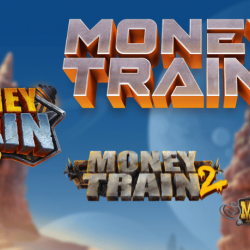Online Casino Safety: Are We Falling for a Utopian Ideal?

Not too long ago, shocking news hit the headlines: MGM Resorts’ security systems were taken down by a group that refers to themselves as Scattered Spider. A similar thing happened to Caesars a few days prior. And anyone who knows anything about casinos knows it doesn’t get any bigger than MGM and Caesars.
Also, one could think that this is just proof of the ultimate safety of online casinos, right? Wrong. Very, very wrong. If anything, online gambling sites could face the same threats, but unfortunately, have less advanced security systems than the industry giants.
Hackers Are On a Roll
Just because MGM and Caesars ended up on the front page, doesn’t mean the same attacks don’t occur in the iGaming industry. On the contrary, they are as frequent as a 21 in blackjack but rarely gain momentum in the media. What I find even more concerning is that there is no exclusive; it happens to everyone: indie brands, sites without a license, and big, regulated establishments.
Earlier this year, hackers attacked another US brand – DraftKings. 60,000 players experienced their private information displayed within hackers’ reach. In April, the French brand Houlgate had to shut down for several days.
And if you think this poses a threat to casinos only, I hate to tell you that gaming suppliers aren’t spared either. At one point in May, Playtech faced a security invasion that caused a lot of headaches for many online casinos worldwide. Even regulated brands that operate in the strictest markets, such as the Dutch, were panicking and trying to save what could be saved.
And that is just the tip of the iceberg. I assume that with smaller brands cyberattacks frequently go unnoticed, and the majority of them don’t even bother to let their users know. Patch it up and keep working like everything is okay!
This Doesn’t Just Happen to Someone Else
I know what the majority of you are thinking: “That could never happen to me! I’ve been playing at XY Casino for ages, and look at me!”, “This thing is blown out of proportion!”, “What are they going to do? Steal the €10 I have in my Neteller account?”. Actually, yes, they can steal your €10, as well as your name and address. Oh, and remember when you sent all those documents to verify your account?
There is a high chance there is a copy of your passport stored somewhere. Truth be told, we know hackers aren’t doing this to warn the company about the lack of security, but to get access to the juicy stuff to use later on. If your stomach is twisting right now, that means you understand the threat.
On top of all that, even if your passport is safe, your phone and email might not be. In the competitive world of iGaming, every user is worth their weight in gold. Getting a hold of someone’s contact list is a shortcut to gaining leads, users, and profit.
Budget Cuts Lead to Ruin
In this day and age, it is difficult to keep the machine running. Even online casinos, often perceived as a low-budget gambling business, take money to maintain. Well, at least if you want to do it properly. Add in AML policies, complicated compliance, and the demand for bigger, heavier, and more complex games, and it is easy to cut corners.
However, one corner that should always be as solid as a rock is the security of the establishment. This goes for both online casinos and brick-and-mortar venues. Let’s face it, no matter which one you choose, there is a great chance your data will be stored on some server, cloud or whatever, and not in an old filing cabinet at the secretary's office.
Caesars or MGM won’t have to file for bankruptcy due to this incident, but I believe many Vegas tourists will now pick Tropicana, Casino Royale, or The Venetian. At least for the time being. The casinos will recover, but the smear on their reputation will remain.
Also, let’s be fair and say that not every attack must have a devastating effect. Some of them are minor inconveniences and disruptions. Still, that doesn’t mean they shouldn’t be taken seriously. According to a recent report by Digital.ai, gaming apps have the highest chance of attacks. By changing the code ever so slightly, users may not even notice they are exposed to a risk they never agreed to!
A New Threat on the Horizon: AI
For years, the gambling industry and AI technologies have tried to make it work. In my opinion, their relationship never turned out to be as revolutionary as we all expected. Instead, it could cause some bad blood.
Nowadays, we use AI to complete boring emails and check grammar, and if you are a student, you have probably used it to write a dry, uninspiring essay, barely enough for a pass. Yet, it is not only busy students and white-collar workers who use AI. The so-called generative AI is becoming a growing threat to online safety, and in the wrong hands, could have a devastating effect.
Things are Not So Dark After All
Does all this mean we should collectively give up on online gambling? If you think so, consider going off-grid, because the same threats lurk from every online shop, news website and, not to mention, social media. Players must be aware that such threats exist and learn how to avoid them, primarily by signing up with safe and regulated brands.
And companies? They also have to work their load and, equally importantly, inform their players when such things happen. Building a relationship of trust was always the best way to succeed.
This article delivers the thoughts and opinions of the author, and it doesn't represent the stance of GoodLuckMate.













-250x250.png?v=7)







-414x318.png?v=7)






